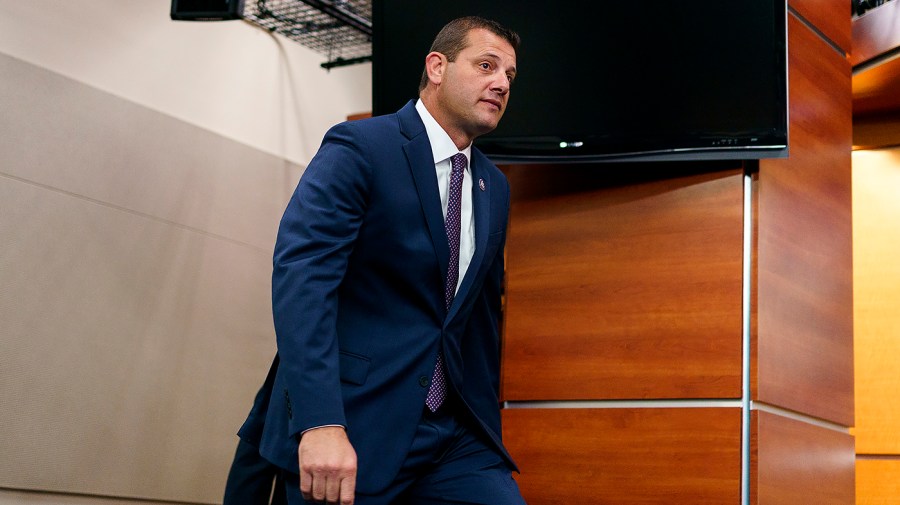The House Republican leadership’s budget resolution for fiscal year 2025 is facing significant hurdles as moderate GOP members express concerns over proposed deep cuts to Medicaid and other social programs. This development threatens to derail the party’s efforts to advance President Trump’s agenda on border security, defense, energy, and tax priorities.
Key Points:
1. The budget resolution, advanced by the House Budget Committee in a 21-16 party-line vote, calls for $2 trillion in spending cuts over the next decade.
2. It allows for up to $4.5 trillion in tax cuts, with a cap on the cost at $4 trillion and potential increases tied to additional spending cuts.
3. The resolution targets significant reductions in mandatory spending programs, including Medicaid and the Supplemental Nutrition Assistance Program (SNAP).
4. Moderate Republicans are voicing concerns about the impact of these cuts on their constituents, particularly in healthcare access.
5. The budget plan faces opposition from Democrats, who offered more than 30 amendments to protect various social programs, all of which were rejected by Republicans.
Impact and Significance:
The proposed budget resolution is a crucial step in the Republican plan to use the budget reconciliation process to advance key elements of President Trump’s agenda. However, the party’s slim majority in the House means that opposition from even a small number of moderate Republicans could prevent the resolution from passing.
If passed, the resolution would pave the way for significant changes to federal spending and taxation. The proposed cuts to Medicaid and other social programs could have far-reaching effects on healthcare access and social services for millions of Americans.
Background:
This budget resolution comes in the context of ongoing debates about federal spending, taxation, and the role of government in providing social services. It reflects the Republican Party’s general preference for lower taxes and reduced federal spending, particularly on social programs.
The use of the budget reconciliation process is significant because it allows certain legislation to pass with a simple majority in the Senate, bypassing the possibility of a filibuster. This makes it a powerful tool for the majority party to advance its agenda.
Different Perspectives:
Republicans argue that the proposed cuts are necessary to reduce the federal deficit and promote economic growth through tax cuts. They contend that reforming programs like Medicaid can lead to more efficient and sustainable systems.
Democrats and some healthcare advocacy groups strongly oppose the cuts, arguing that they would disproportionately harm vulnerable populations and potentially lead to millions losing healthcare coverage. They view the proposed tax cuts as primarily benefiting wealthy individuals and corporations at the expense of social programs.
Moderate Republicans find themselves caught between these competing viewpoints, balancing concerns about deficit reduction with the potential impacts on their constituents.
As the debate continues, the fate of the budget resolution remains uncertain. Its passage or failure will have significant implications for the Republican Party’s ability to advance its policy agenda and for the future of federal spending on social programs.









